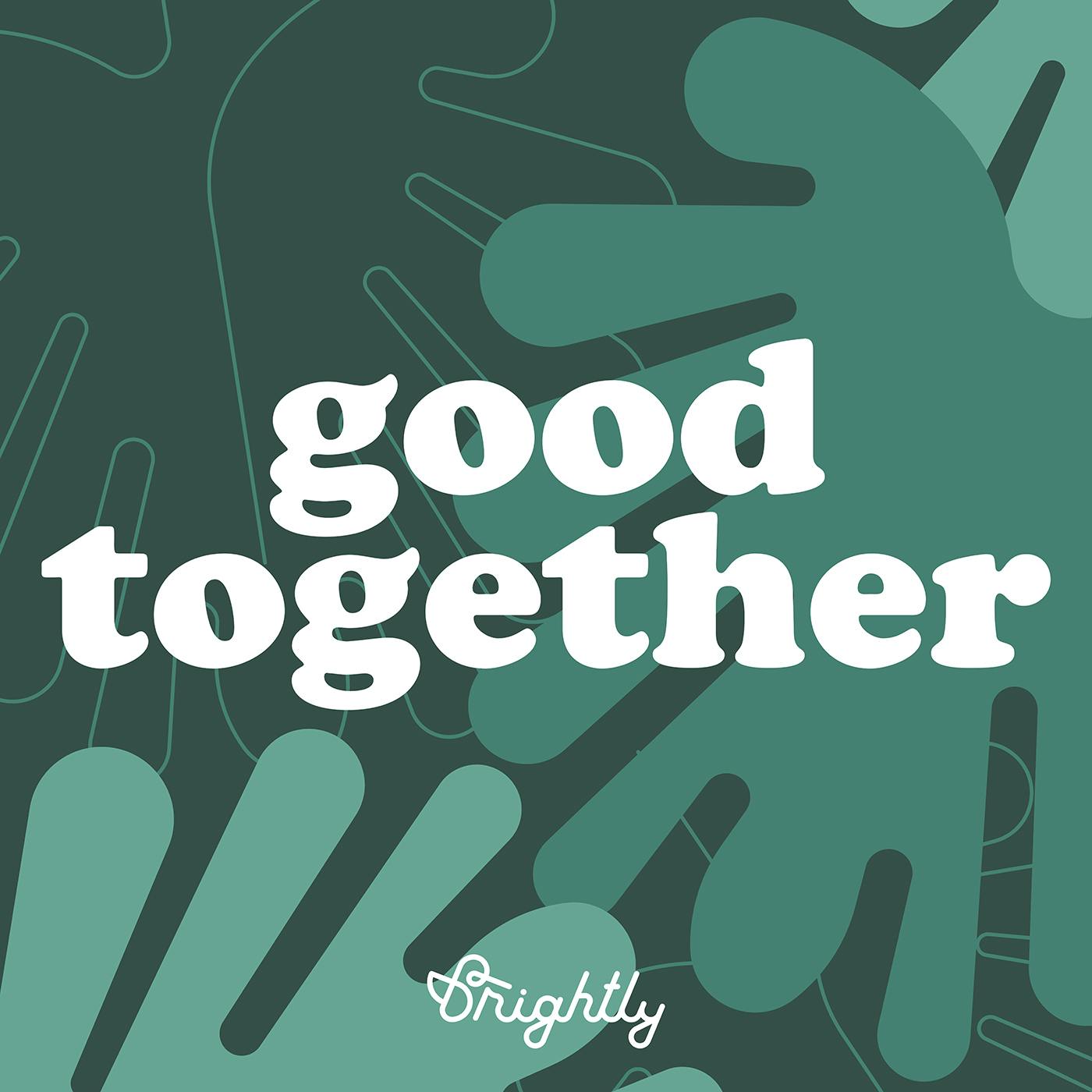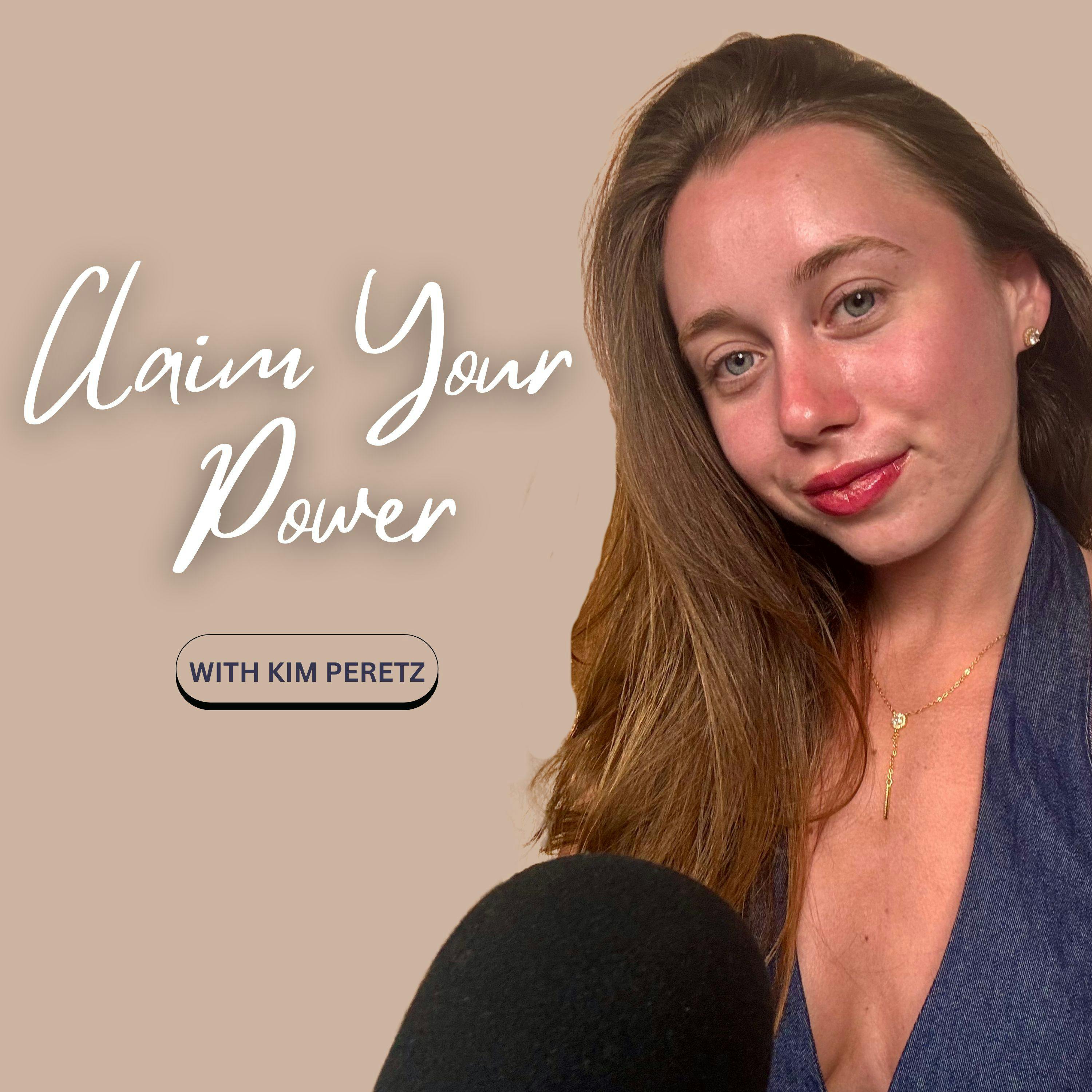.jpg)
The Eco-Minded Mama Podcast
Your all-inclusive roadmap to creating a life that is truly sustainable: saving you money, reducing waste, and easing your stress! Hosted by a mama & coach, Katie Kurpanek, this podcast will nurture, motivate, and empower you with practical tips for raising your family while becoming the powerful, eco-minded mama you want to be! ✨
The Eco-Minded Mama Podcast
Managing Mama Overwhelm: Expert Insights with Licensed Therapist-Tiffani Domokos
Send Katie a Message with Your Questions/Thoughts! :)
Welcome back to our conversation with licensed therapist and parent coach, Tiffani Domokos! This is Part 2.
In Part 1, just before this episode, we discussed strategies for identifying the root challenges that continually trip up our progress when building new habits and how to reinforce the changes we want to see.
Today, we’re going to unpack the concept of mama-overwhelm and how to manage this while caring for our families and our own nervous systems.
I’m Katie – a mama, coach & podcaster focused on supporting eco-minded mamas to live sustainably: saving thousands of dollars and living a life that is in alignment with their core values so they can care for their families and their environment! Let’s get into Part 2 of our conversation…
Resources Mentioned in the Episode:
- Tiffani's website, monthly newsletter, and more: https://linktr.ee/tiffani.domokos
- Sign up to receive Tiffani's Managing Mama Overwhelm workshop recording: Https://pages.tiffanidomokos.com/mamaoverwhelm
- Join our online community over in The Eco-Minded Mama Collective where we support each other with monthly challenges, giveaways, member makeovers, and cultivate lasting friendships while we raise our eco-minded families together!
P.S. Be sure to subscribe to the show so you never miss an episode and follow us on Instagram & TikTok @ecomindedmama to stay connected! ✨
Welcome back to our conversation with licensed therapist and parent coach Tiffani Domokos. This is part two. In part one just before this episode, we discussed strategies for identifying the root challenges that continually trip us up when we are trying to make progress with a new habit or a new goal, and how to reinforce the changes that we want to see. So if you missed that episode, go check it out. Today, we are going to unpack the concept of mama overwhelm, and how to manage this while caring for our families and our own little nervous systems. So I'm Katie, I am a mama coach and a podcaster focused on supporting eco minded mamas to live sustainably, saving 1000s of dollars and living a life that is aligned with their core values so that you can care for your families and the environment. Let's get into part two of our conversation. Tiffani, you recently taught a workshop called Managing Mama Overwhelm. And I love that title, by the way, and you discussed some of the myths surrounding overwhelm. Can you share a bit about this with us?
Tiffani Domokos:Yeah, um, so what I found was that when I'm working with my clients, I'm coming up against a lot of I mean, I called them myths, but just kind of misnomers about the idea of being overwhelmed. So this idea that we as moms need to be on a pedestal, that we need to be able to do everything, and juggle all the balls and make all the appointments and work or not work and do all the things and not ever get overwhelmed and just be able to handle it and be calm, cool and collected all the time. And, and when I break that down with people, it's really this belief that, you know, myth one, I'm a bad parent, if I get overwhelmed, or I am damaging my kids by showing that I have feelings other than being calm. I'm trying to think of other ones. But those are kind of the big ones, right? This identity of I am bad if I'm not perfect. And that is such a narrative in the feminine space, culturally, and trying to break some of that in in us as moms, I think it gets really kind of nodded and tied up together. And so helping people kind of untangle hat and really look at what do you believe about being human, because the truth is that everyone has a nervous system. And everyone has this kind of budget that they live on. Some people call it a window of tolerance. But But basically, that we make deposits into ourselves into our body, our nervous system, our brain, that that kind of keeps things flowing, right? We're feeling good. But we also have withdrawals from that where we can get depleted, that could be stress. That could be you know, not eating well, that could be not being hydrated. Or a lot of people when they're stressed, they hold their breath, right. So literally, like not enough oxygen in the body. And so I'm really walking through Pete with people that the basis of creating security for your kids, but also for yourself and and firstly, for ourselves as moms is for us to feel safe seen and Sue, especially when we're triggered. And so triggers triggers can look like a lot of things for a lot of different people. my nervous system is really sensitive to sound and to high pitched kind of constant sound. And wouldn't you know it? I am around a kid that likes to sing at the top of her lungs at the screechy voice possible, right. So I know that about my nervous system. I know that that is that is a withdrawal and so I have to balance that with some deposits. And sometimes that's self care sometimes, you know, and and self care being like silence like I sit in silence a lot when I'm not around my kid because that noise is really overwhelming for me. And so in the workshop, we kind of break down what does that look like to be safe seen ensued when your body is triggered? And you're like, freaking out and can't keep the lid on? Can't be calm, cool and collected anymore? How do you come down off of that and what are some kind of logical next steps?
Katie Kurpanek:Hmm. Oh my goodness. It is. It's amazing how hard it is to just take care of basic needs like food, water, air literal air and breathing enough or even just being able to take a deep breath. I know for some people, taking a deep breath is actually really hard. So yeah, it is not as easy as, as it might seem on the surface level. And then then when you're a mom carving out that time, like to even just sit in silence and not have like the constant noise from the background. I mean, I'm kind of racking my brain like when when do I, it's hard enough to carve out time to like, record these episodes. So I guess what are do you have some tangible ways that, you know, you would recommend for moms to be able to make space to feel safe, seen and soothed? And is that something that they're just able to do for themselves? Or is that something that they often need support in? Or maybe it's both?
Tiffani Domokos:Yeah, I think it depends on the person. I mean, a lot of this is It depends, right? So for some people, that noise thing, not a big deal. But like whining is is a trigger for them. And so for me it is identify, identify what the trigger is and make a plan around it. So if you know that dinner time is an overwhelmed time for you make a plan around it, like does does your kid respond to music being played? And they'll dance and kind of play independently? If it's not that do they do they really need like a snack during that time, because they're getting to the hungry stage. And you offer just like vegetables and fruit that you would normally put on their plate, but there's gonna eat that first while they're waiting for you. And then they'll go happily play. So brainstorming. I know, I said this in the last episode too, but like, making space to really brainstorm around those trigger points, what are those, making a plan and, and then having some accountability coaching is a great accountability. I also think having your partner support and knowing literally telling your partner, I'm going to work on this. So if you see me losing it around this particular topic or timeframe, here's what I want you to do. Like, I literally want you to touch my arm and say I got this, go take a break, or write like whatever that script is that you want him or her to say to you. I think that is really helpful. Because a lot of times our partners just want to be helpful. But we haven't asked for their help. And so then their help kind of feels like criticism, which is a whole different trigger than that your system is dealing with, which is also not helpful. So when we're asking for support being really specific about I'm doing this, when this happens, here's the support that I need. Yeah,
Katie Kurpanek:so yeah, not not doing not waiting for the moment when you're like red hot to do that, because it's just that part of your brain is not actually going to be functioning well enough to do that with effective communication in the moment. So So yeah, like, when you are in a state of calm, you know, you're at rest, you're at peace, then, you know, I don't know how like, you could have a reminder for yourself, somehow, maybe setting another timer on your phone for a time of day where you're pretty sure you're going to be consistently at peace. But like, yeah, reminding yourself to have those conversations then. So that Hindsight is 2020 you'll have like, just a state of calm to reflect on exactly what you need, based on those previous experiences. So yeah,
Tiffani Domokos:yeah. And I think to that, taking the small spaces, so if you have kids in school or daycare, I think again, as moms, it's just really easy to like, drop and go and run to the next thing. And we're just like constantly in this state of stress and like, get to the next thing. And what our nervous system actually needs is like a moment, like it doesn't need to be an hour. It's it's a moment of breathe, feel my body, like literally feel my body and be present with myself. forgive myself for what happened this morning, let it go make a plan for repair, if that is what is needed with your kids or your partner or whatever happened. And then go into the next thing, fully present. We kind of go into these like, we're like one foot in one foot out. We're still in the guilt of the morning or whatever happened previously, and we're trying to do the next thing and we have this habit of, or I see a lot of my clients have a habit of, I can prove my I can prove that that wasn't really on purpose, I, that wasn't really who I am by doing this other thing. But our nervous system is still taxed, it's still depleted. And so until you take the time to just take a moment and put some deposits back in, we're gonna we're setting ourselves up to have another depletion, and another moment of overwhelm. And overwhelm doesn't also also I want to mention doesn't have to be the red hot moments. It can also be the like blue shutdown moments where you kind of feel like you're in a fog, or you're scrolling mindlessly. Those are good, like red flags for man, I probably need some, some nervous system support. Yeah,
Katie Kurpanek:like just those dissociating kind of totally habits. Yeah. And I think mamas who are listening, like you'll know yourself, you'll know right now, whatever you're thinking of that you get into or get triggered into, I think that'll, that'll become so clear for you. But I appreciate the work you're doing around this and how you're supporting moms. And in this episode to what you've given us, thank you so much. And I know you told me that you will have or you do have that recording of the managing mama overwhelm workshop available. So if mamas want to go through, you know, the whole thing? Where could
Tiffani Domokos:Yeah, Tiffanidomokos.com, forward they find that? slash mama overwhelm, I can send you the link. That is no problem. Yeah, and it's only 30 minutes. So I know a lot of workshops are like an hour, hour and a half, I was really intentional in creating 30 minutes, because that is that is sometimes all that we've got. And that's probably broken into chunks throughout the day. And that's okay, so, but yeah, it's recording, you can listen to it anywhere and be sent to your email.
Katie Kurpanek:I love that. That's so awesome. Well, I will be sure to have it linked in the show notes. So anyone who is interested, you can just go to this episode description, and you will find it. And then later this month. So at the time of this recording, it is April, and in about the middle of the month on the 17th, we are going to have Tiffani in The Eco-Minded Mama Collective for an even deeper q&a session. And that is also very intentionally set to be just a half hour because I know we are busy moms. So if anyone listening is interested in joining our collective and being able to take part of that, that will be linked in the show notes as well. So eco minded mama.com. That is where you can find all the information about joining our collective. The theme for this month in our online collective community is goal setting, habit building, setting a strong foundation, so that we can get into the five pillars of sustainable living. And I've mentioned those in previous episodes. But we're going to go through one of those pillars at a time, one month at a time. But we do it together because like Tiffani and I have said in this episode and before, it is so much better to just do life within community and to find support and empathy and people to just brainstorm and problem solve with. So that is what is happening in the Eco minded mama collective. And then we will go even deeper into this conversation with Tiffani again on the 17th. So I'll have all that linked below. But thank you so much for your time and your insight with us. Tiffani, I have just loved having you back on the podcast.
Tiffani Domokos:Yes, I always look forward to our conversations, Katie.
Katie Kurpanek:thank you so much. Have a great day. All right, you too.








